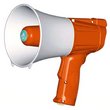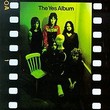|
|

Speakers' corner Following up our retro scope series of 2006 and 2007, 2009 and 2010 - here's the ever-continuing, never-stopping New Speakers' corner! Luna Kafé's focused eye on great events, fantastic happenings, absolute milestones, or other curious incidents from the historic shelves/vaults of rock. This moonth the Lunar spotlight has captured a 40 year old record from the early days of progressive rock, from the first wave of Prog. This album was the band's third album, and svereal times spotted as one of the classic rock albums from the 1970s, of the cosmic rock era. Sí. Oui. Da. Hai. Tak. Jes. Jep. Ie. Yeah. Yes we can.
Yes I'm not sure about the release date of The Yes Album. Some sources say 19 March 1971, others 19 February and a few suggest 19 February in Britain and a month later in the USA. The former seems to come from the most reliable sources, among them a couple of CD reissues. Anyhow, it sure is about 40 years ago today. I must admit I was a huge Yes fan as a teenager. They were up there in the top three along with Genesis and Pink Floyd for a while around 1976. Fragile (released in November 1971) was my first encounter with the band. Including the great single "Roundabout" and an impressive album it was! Close To The Edge (from September 1972) and The Yes Album, also, was discovered a little later. It came to a halt when I borrowed Tales From Topographic Oceans (January 1974). Studying the lyrics of the entire four LP-sides I realised I didn't understand anything, not even what trip lyricists Jon Anderson and Steve Howe were on (was it to outer or inner space?). The music, too, seemed calculated in a less than pleasant way. Through the 1980s when Yes turned into a real commercial pop-band for a while, and most of the 1990s I don't think I ever touched a Yes album apart from when moving house. Then something happened: the trailer of Vincent Gallo's debut motion picture Buffalo '66 (from 1998). Scenes from the film had been cut to fit with the opening instrumental part of "Heart Of The Sunrise" off Fragile. Not only the combination of film and music, but also the music in itself was pretty cool! Proto-progressive rock with mellotron, drums, organ and bass up front. Even better than King Crimson at their best after Yes-drummer Bill Bruford had joined the Crimson line-up. The film (Buffalo '66) turned out a bit disappointing after the stunning appetiser, but my faith in the early Yes albums was regained. Yes started as (in lack of more fitting words) a hippie band, including members from the second divison psychedelic band The Syn (1965-67) and then Mabel Greer's Toyshop that evolved into Yes in 1968. The band's songs - both self penned and a few quite freely interpreted cover versions of The Beatles, The Byrds, Buffalo Springfield and Richie Havens (the man who opened the Woodstock festival) - were mainly of the soft kind about love and peace, with a few harder edges in between. Their second album Time And A Word (July 1970) had a couple of songs that indicated the band were in for greater challenges. Original guitarist Peter Banks was sacked before the album was released. Enter Steve Howe from the premier division psychedelic band Tomorrow - the third hippest band of the London underground in 1967, after Pink Floyd and Soft Machine. The Yes Album includes only six songs, two of them divided into two or three different parts. Yes, Yes was indeed heading in a more ambitious direction. But, the music is quite straight forward, after all, in fact pleasantly hummable most of it. And the three parts of "Starship Trooper" (no connection with the film of almost the same name) for instance, were only excerpts from three songs put together after each other. The second part, called "Disillusion", was directly adapted from a couple of verses of an earlier Yes song "For Everyone" (only released as a BBC recording from early 1970, as far as I know). And part three, the instrumental "Würm", was nicked directly from the first bars of "Nether Street" a song by Steve Howe, recorded by the band Bodast that he started after Tomorrow had folded. I'm particularly fond of the main songs of the album, like the opener "Yours Is No Disgrace" and "... Trooper". Tony Kaye's organ playing and sound is superb. Yes, we're still in the golden era when progressive acts were dominated by classic Hammond B3 rather than synthesizers. Mr. K. occasionally utilizes the Moog synthesizer, but more or less as short effect stunts. Steve Howe's guitars are playfully entwined with the organ and push the songs forward. And the guitars seem to be more dominant than on the first two Yes albums. Steve also contributes as a composer and was surely well integrated in the band by the time the third Yes album was recorded. Chris Squire's bass playing is also one of a kind. His frequently used metallic tractor bass sound is the missing link between John 'The Ox' Entwistle's of The Who and Jean-Jacques Burnel's of The Stranglers. Squire's somewhat intricate playing seems to draw closer to the former Ox, though. Bill Bruford's drums are as steady as always, but apart from the final track they sound less characteristic and audible here than later in his career. And of course there is the high-pitched choirboy voice of Jon Anderson. Not of everyone's taste, I suppose. But all the ingredients work remarkably well together in these songs. They give me a feel of joy similar to the one in early spring when you can throw away heavy winter clothes and boots and run light as a feather out in the warming sun and mild breeze. "Perpetual Change" with occasional jazz leanings is also a lengthy goodie, even though Tony Kaye plays more piano than organ. Anyway, the bass and guitar interplay are more in charge here than the keyboards. There are a couple of shorter fillers in between. "The Clap" demonstrates what Steve Howe was capable of on his own as a brilliant guitar player, apparently inspired by folk guitarist Davy Graham. To me it sounds closer to guitar-gypsy-jazz of the Django Reinhardt kind. Impressive and entertaining all the same. "A Venture" is the mildest offering, a happy-go-lucky singer-songwriter-kind of song with reverberations of the golden 1960s where Kaye's piano eventually runs over the hill and far away, at a venture. Along with the start of "I've Seen All Good People" that includes romantic recorders and acoustic guitar, it reveals elements of folk music within the Yes ranks. The Yes Album is a suitable title; it includes positive music and lyrics: 'Yesterday a morning came, a smile upon your face.' It's still a long way to go to the band's over-ambitious Works (with a capital W). Here are no melodies taken from classical symphonic composers, no huge stacks of twentysomething different keyboards, no dreamy new age-flavoured sleeve designed by Roger Dean. The front cover instead depicts a rather humble band in a grim light and very modest surroundings. In fact The Yes Album is quite straight-forward, though with touched of finesse. This is Yes at their best, at the crossroads, on the brim of leaving their innocence behind. But some last good vibrations of a soon-to-be lost era are still there. Copyright © 2011 JP
|
| © 2011 Luna Kafé |
